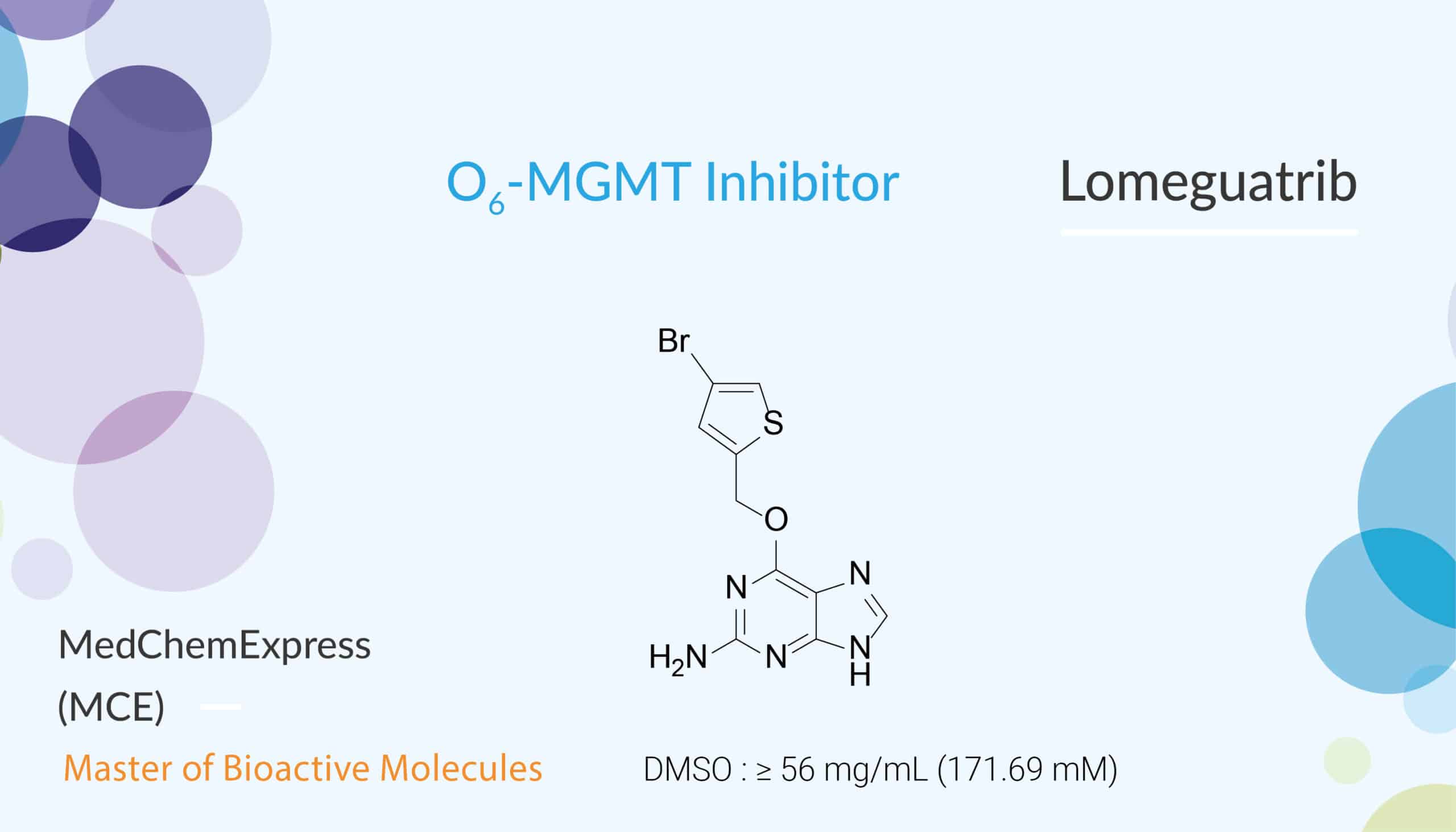O6-alkylguanine DNA alkyltransferase (also known as AGT, MGMT or AGAT) is a protein that in humans is encoded by the O6-methylguanine DNA methyltransferase (MGMT) gene. MGMT repairs the naturally occurring mutagenic DNA lesion O6-methylguanine back to guanine and prevents mismatch and errors during DNA replication and transcription. MGMT repairs alkylation at the O6 position on guanine by accepting the alkyl group onto a cysteine residue in its active site. Accordingly, MGMT plays a critical role in cancer therapy with alkylating reagents. For example, Tumour resistance to chemotherapy involving methylating agents such as DTIC and Temozolomide is linked to expression of MGMT.
Lomeguatrib (also known as PaTrin-2) is an O6-methylguanine-DNA methyltransferase (MGMT) inhibitor. This compound is a potent nontoxic MGMT inactivator, which very effectively inactivate MGMT in cells and tumours. G P Margison et al confirmed that Lomeguatrib is also an inactivator of MGMT in MCF-7 cells both in culture and in xenografts in vivo. In addition, Lomeguatrib causes MGMT inactivation in all host tissues with complete inactivation in kidney. Moreover, in xenografts, Lomeguatrib completes inactivation of MGMT within 2 h of dosing (20 mg/kg; i.p.) and only slight recovery by 24 h. Lomeguatrib enhances the antitumor activity of Temozolomide in both human melanoma and MCF-7 xenografts. Neither Lomeguatrib nor Temozolomide alone has an effect on tumor growth rates. In contrast, the Lomeguatrib-Temozolomide combination produced a substantial tumour growth delay.

In summary, Lomeguatrib is a highly potent MGMT inactivator, improves the therapeutic effect of alkylating agents in a number of tumour models.
References:
[1] M Clemons, et al. Br J Cancer. 2005 Nov 14;93(10):1152-6.